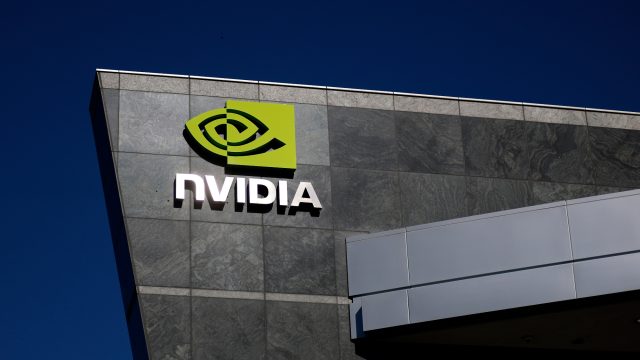
Nvidia was the envy of Silicon Valley. Now it’s stuck in no man’s land in the trade battle between global superpowers, said Dan Gallagher in The Wall Street Journal. The Trump administration has blocked the last artificial intelligence chips that the California-based chipmaker was selling to China. The H20 chip isn’t “a huge part of Nvidia’s sales,” totaling about $13 billion, but it had been designed specifically to comply with ever-tightening export restrictions. Its performance wasn’t even up to that of Nvidia’s top-of-the-line chips from two years ago. But the U.S. has effectively shut the door on any chips business with China as both countries “jockey to take the lead in AI development.”
Nvidia doesn’t deserve to become a trade pawn, said Catherine Thorbecke in Bloomberg. The previous export controls around its products were mostly put in place by the Biden administration as a way “to hold China back in the AI race.” But while the restrictions “have slowed China’s AI ambitions,” they haven’t stopped it—and Beijing appears to still be making up ground. DeepSeek, the Chinese AI startup that shocked the world earlier this year, proved that “China is not as far behind on AI development as many thought.” Throttling Nvidia’s business by now outlawing its custom China chips is “risking America’s hard-won gains in the race for tech supremacy.” Ultimately, Nvidia will be fine, said Tae Kim in Barron’s. Its long-term prospects for the China market were already diminished, and it wasn’t going to be long before China’s AI demands made the low-performance H20 chips obsolete. In the West, “AI innovation is still booming, demand for AI chips is robust,” and Nvidia remains the No. 1 supplier.
Nvidia’s pain is Huawei’s gain, said Tripp Mickle in The New York Times. Nvidia chief executive Jensen Huang has for years “painted a dark picture of a future” where Chinese tech giant Huawei gains ground and China uses the company’s chips “to build AI data centers across the world” to spread its influence. It can now use sales that otherwise would have gone to Nvidia “to hire more experienced engineers and make higher-quality chips.” Huawei has been waiting for this chance, said Jowi Morales in Tom’s Hardware. Its newest AI chip, the Ascend 920, was unveiled “almost immediately after the White House announced the ban on Nvidia’s H20.” The chip, which roughly matches the banned Nvidia models, was already in development, and Huawei was “just waiting for the chip restrictions to drop.” Nvidia had gotten used to the idea that it could sell aging technology to the Chinese market. That “party’s over.”
Another shot across the bow was heard around the world this week, said Wayne Williams in TechRadar. A report in the South China Morning Post said that Huawei had recently launched a “nuclear-level” new graphics processing unit (GPU) that outperforms Nvidia’s highest-quality product using its own homegrown chips. The system “consumes nearly four times the power” of a Nvidia GPU. But that’s a small price for China to pay.
The Trump administration has blocked Nvidia’s chip sales to China, but Huawei is already stepping up with its own AI replacement




